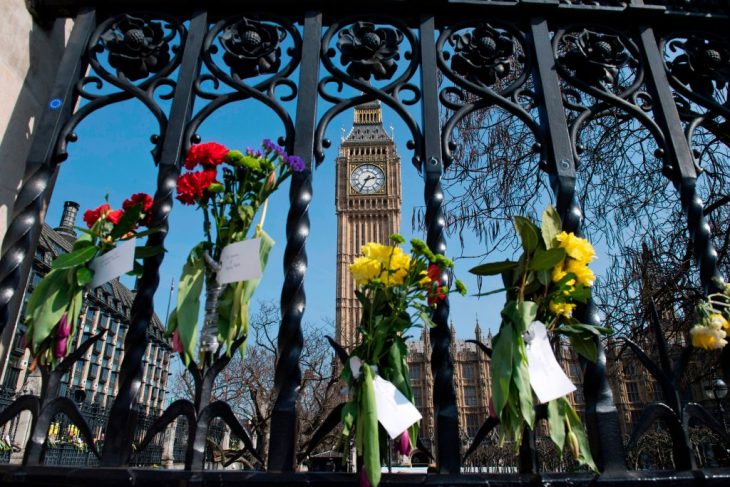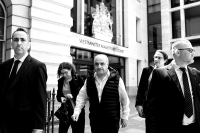Since last week’s attack in Westminster, various readers have asked whether my list of ‘standard responses to terrorism’ has held true in the aftermath of this attack as in the aftermath of so many attacks before. And since it appears that good news must now immediately be seized from any tragedy – even within minutes of that tragedy occurring – in keeping with the times, I am happy to report that my list does indeed hold true.
I had already noted last week that we were swiftly into the realm of hashtaggery with ‘Pray for London’ trending. I must say that I’m never sure how many of the people urging people to do this actually pray themselves, or think prayer works, or what it might achieve. But at least this is an understandable phase in the unfolding of any modern attack. And one can hardly blame or scold people for saying something nice, even if it is hollow.
Next, we undoubtedly saw the diversion blame-game, where everybody’s rage is suddenly switched from the attacker onto whoever has said the wrong thing about, or extrapolated out the wrong thing from, the attacker. True to form the main recipients this time were Katie Hopkins (naturally), Nigel Farage (obvs) and Arron Banks. All pointed to immigration as being linked to the attack, which was a terrific gift to all those who were getting tired of the hashtags. A little later we discovered that Khalid Masood was not himself an immigrant, and so various people rejoiced in pointing out that Farage et al must be advocating that we build a wall around Kent. This drollery is always wonderful. It allows everyone to enjoy two minutes of hate followed by two minutes of forced hilarity. And it allows a lot of people to avoid dealing with any serious aspects of the case at hand.
As for the traditional good news stories, this time they trod upon each other’s heels, so fast they followed. I was struck by the number of Muslim good news stories, of course. Today’s Muslim good news stories refers to a commemoration on Westminster bridge. As the BBC news story relates:
‘Police officers and hundreds of members of the Ahmadiyya Muslim Youth Association are among those expected to join together on Westminster Bridge to mark the attack.’
Thus ticking two boxes at once. Yes, that’s right, the most persecuted and peaceful sect within Islam are once again front and centre, reminding the public of the good that Muslims can do and simultaneously (though doubtless with the best intentions) helping to obscure part of the problem. One presumes that the Salafi and Wahhabi Youth Associations of the UK are busy. And perhaps the Iranian groups which hold the annual ‘Al-Quds day’ hatefest in London only have one day’s marching in them each year.
But it isn’t just Muslim good news stories that have proliferated this time, but almost any good news stories. I am increasingly struck by this. I recently read an interview with a Jewish student who mentioned in passing how important it is to make ‘something good’ come from the Holocaust. My reaction then – as always – is ‘why?’ Whose reaction to the industrial-scale slaughter of millions of people is ‘How can I feel better about things in the wake of this? I mean, this whole Holocaust thing is one serious downer.’ A similar scent is in the air in the wake of the Westminster terror attack. In studio discussions among others in recent days I have been very struck by the popularity of any sentiment which talks about the ‘good’ that has already, or must, come from this.
Again, this seems to me a very strange, self-absorbed and unhealthy way to approach the world. Three people were killed when they were mown down by a man in a car. Many others were wounded. PC Keith Palmer was then stabbed to death. Whose reaction to this is ‘we must get some good out of this?’ And not just within days, but within hours? Tales of ‘unity’, and ‘coming together’ and so on are all very well. But the desperation for them, and the desperation to report them leave an unpleasant taste to me at any rate. Perhaps the swiftness of the news cycle’s turn from tragedy to good news in hours is the reason that only a week on from the attacks, and with the dead still not buried, the attack feels like it’s old news.
Finally, this attack has also stood out for an amazing proliferation of the now traditional ‘addressing of questions which aren’t quite the point.’ As I mentioned on the BBC on Sunday morning, personally I’m perfectly open to government inquiries into the role that drugs can play in propelling terrorists to do what they do. And I’m very happy to have the widest-ranging discussion possible on what role our country’s foreign and domestic policies might have in inspiring attacks of this sort. But I don’t see why a wide-ranging and official consideration of the role religion plays in such attacks could not also happen. Yet strangely enough, this is the one line of inquiry that has already been officially ruled out. The day after that attack, in the House of Commons the Conservative MP Michael Tomlinson asked the Prime Minister:
‘It is reported that what happened yesterday was an act of Islamic terror. Does the Prime Minister agree that what happened was not Islamic, just as the murder of Airey Neave was not Christian, and that both were perversions of religion?’
To which the Prime Minister replied:
‘I absolutely agree. It is wrong to describe what happened as Islamic terrorism; it is Islamist terrorism—a perversion of a great faith.’
But where might the ‘Islamist’ terrorism come from? Nobody wants to know. So the one thing that is totally off limits, only just after the blood is mopped off the streets, is a discussion of whether the blood got there through any religious reasons, perverted or otherwise?
My own view is that we’ll find out in the coming days and months a bit more about what it might have been that propelled Khalid Masood to do what he did, and I can’t see any sense in completely blocking off any investigation or discussion. But a problem that will one day have to be confronted by Michael Tomlinson, Theresa May and everyone else is that the murder of Airey Neave was not only an un-Christian act, but was not carried out in the name of the Christian faith. While it is possible that Masood’s propulsion, like his modus operandi was inspired by Isis. And it is hard to pretend (though many still do) that Isis is inspired by, say, a socialist political desire to unite Iraq and Syria in a great left-wing union, rather than by an ideology that is very religious indeed in the worst possible way.
Anyhow, for the meantime, carefully missing part of the point appears to be in the air. The only new variant on this tradition that I have seen is from a contributor at the Guardian who has drawn a link between ‘lone-wolf’ attackers and ‘domestic violence’. Again, this is a perfectly interesting aspect to look at. But why consider all these possibilities while cutting off another?
Anyhow – the answer is that, yes, the usual playbook has played out. And it has been by turns farcical and tragic.







Comments